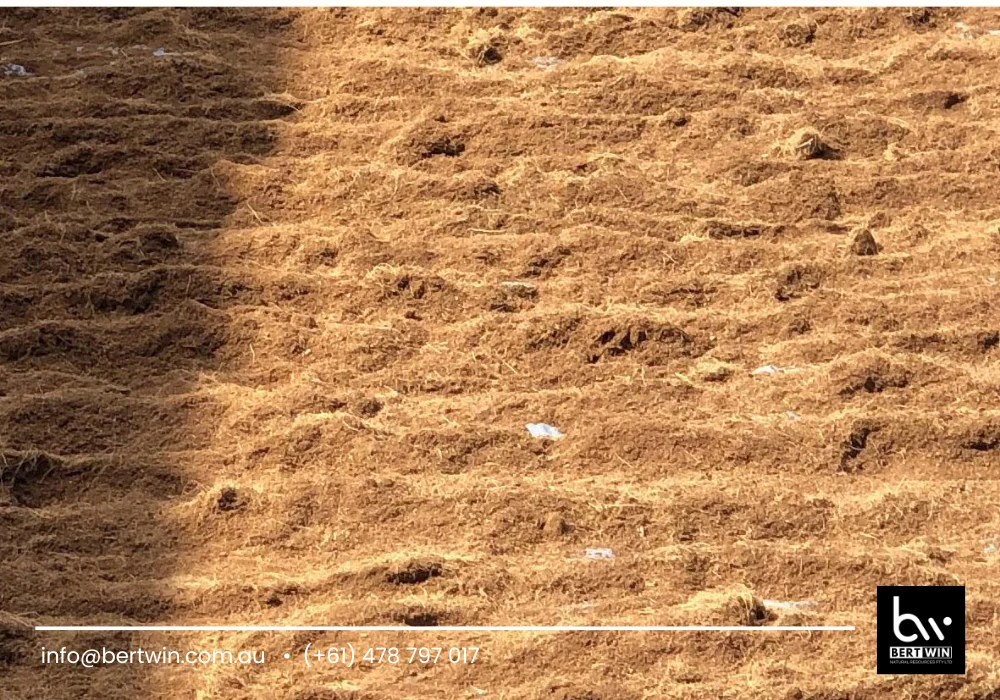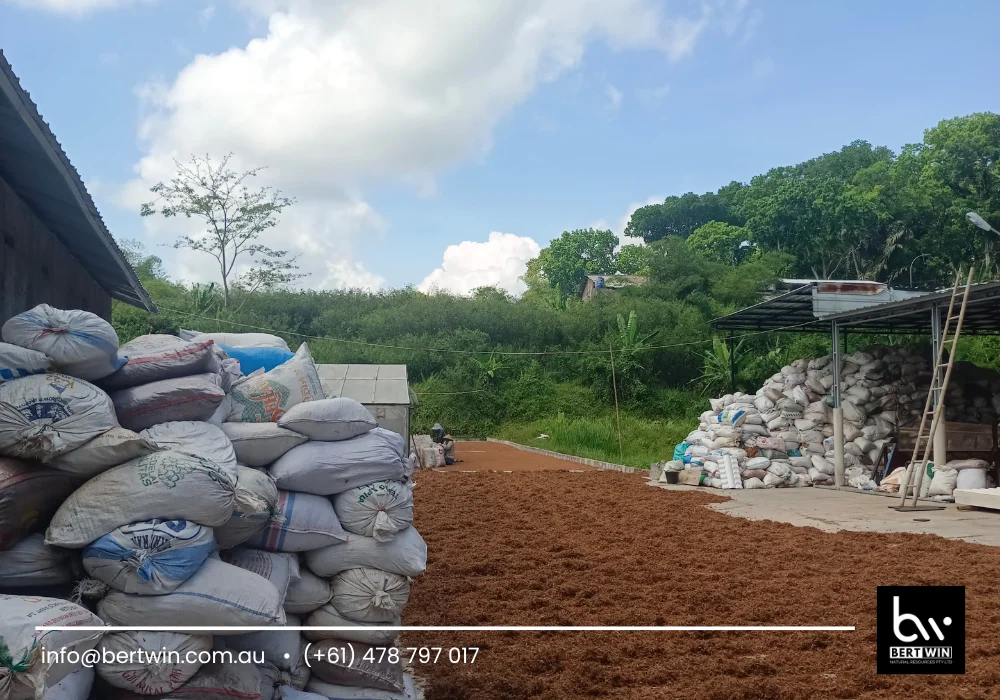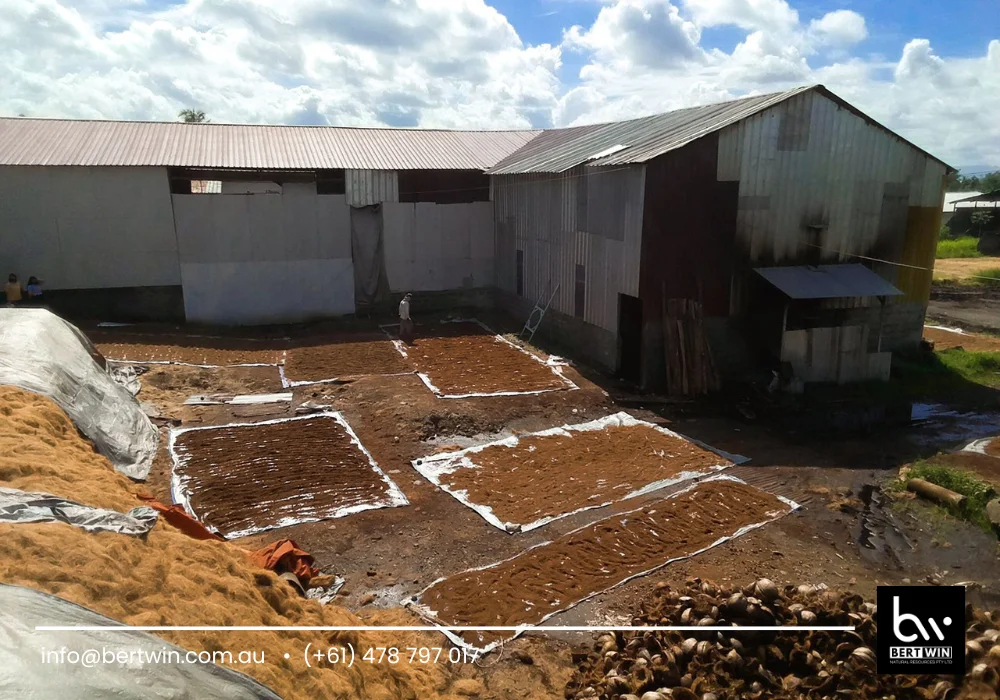Using cocopeat for gardening is becoming a popular choice among gardeners looking for an eco-friendly and effective medium to grow their plants. Cocopeat, derived from the husk of coconuts, offers numerous benefits over traditional soil, including better water retention, enhanced aeration, and sustainability. In this article, we will discuss how using cocopeat for gardening can improve plant health, increase yields, and contribute to more environmentally responsible gardening practices.

What is Cocopeat and Why is It Ideal for Gardening?
Using cocopeat for gardening refers to the process of incorporating coconut coir, the fiber extracted from the husk of coconuts, into your gardening practices. Cocopeat is lightweight, absorbent, and sustainable, making it an ideal medium for growing plants in both small and large-scale gardens.
Cocopeat is a renewable resource that is often used as a soil amendment or a substitute for soil in containers, raised beds, or hydroponic systems. It is processed by drying and grinding coconut husks into fine, fluffy particles that can retain water, provide excellent aeration, and improve soil structure. For gardeners looking for an alternative to traditional soil, using cocopeat for gardening can be a game changer.
Benefits of Using Cocopeat for Gardening
- Improved Water Retention
One of the primary advantages of using cocopeat for gardening is its superior ability to retain water. Cocopeat can absorb up to eight times its weight in water, making it particularly useful for gardeners in regions that experience droughts or for those looking to conserve water. Its moisture retention properties ensure that plants have a consistent supply of water, reducing the need for frequent watering. This is especially beneficial for container gardens, where water drains quickly. Cocopeat helps to keep the soil moist for longer, which is essential for plant roots to absorb water efficiently. - Better Drainage and Aeration
In addition to water retention, using cocopeat for gardening also improves drainage and aeration in the soil. Cocopeat’s fibrous structure allows air to circulate around plant roots, preventing them from becoming waterlogged and suffocated. Proper aeration is critical for healthy root growth, as it helps roots access the oxygen they need to thrive. This is particularly important for gardeners with heavy, clay soils, which can become compacted and poorly aerated. By mixing cocopeat into these soils, you can increase the overall porosity and ensure a healthier growing environment for your plants. - Sustainability and Environmental Benefits
Using cocopeat for gardening is a sustainable choice because it is a byproduct of the coconut industry. Coconut shells, which are often discarded as waste, are transformed into valuable cocopeat that can be used in gardening. By repurposing coconut husks, gardeners are contributing to a circular economy and reducing waste. Furthermore, cocopeat is biodegradable, making it a natural and safe alternative to synthetic soil amendments. It decomposes over time, enriching the soil with organic matter that improves soil fertility and structure. - Reduced Risk of Pests and Diseases
Cocopeat is naturally resistant to pests and diseases, making it a healthier option for gardening. Traditional soil can harbor pests like root aphids, fungal infections, and nematodes, which can damage plant roots. Using cocopeat for gardening helps reduce the risk of such infestations, as cocopeat is less likely to contain harmful pathogens. Additionally, cocopeat’s resistance to mold and mildew makes it a reliable choice for indoor and outdoor plants, particularly in humid environments where fungal growth is a common concern.

How to Use Cocopeat for Gardening
- Preparing Cocopeat
When using cocopeat for gardening, the first step is to prepare it. Cocopeat typically comes in compressed blocks or bricks, which need to be hydrated before use. To prepare cocopeat, soak it in water for about 15-20 minutes to allow it to expand and loosen up. After soaking, fluff the cocopeat with your hands to break it into a light, airy texture. Once fully hydrated, the cocopeat is ready to be mixed with your soil or used on its own. - Mixing Cocopeat with Soil
For gardeners looking to improve soil structure, cocopeat can be mixed with existing soil. The typical ratio is about 1 part cocopeat to 2-3 parts soil, although this can vary depending on your soil type and the plants you’re growing. Mixing cocopeat with soil helps increase water retention and aeration, while also improving soil texture. Cocopeat can be especially useful for sandy soils that drain too quickly or clay soils that are too compacted. The addition of cocopeat improves soil quality, creating a more balanced environment for plant roots. - Using Cocopeat in Containers and Raised Beds
If you’re growing plants in containers or raised beds, using cocopeat for gardening is a great alternative to traditional soil. Cocopeat can be used as the primary growing medium or mixed with other organic materials like compost or perlite to enhance its properties. When planting in containers, fill the pot with cocopeat, ensuring it covers the root system. This will provide the necessary moisture retention and aeration for healthy plant growth. Cocopeat is particularly useful for growing vegetables, herbs, and flowers in pots, as it helps maintain optimal conditions for the roots. - Using Cocopeat in Hydroponic Systems
Using cocopeat for gardening is also ideal for hydroponic systems, where plants grow in a nutrient-rich water solution without soil. Cocopeat serves as an excellent growing medium in hydroponics because of its ability to retain moisture and support root growth. It can be used in combination with other mediums, such as perlite, to create a balanced hydroponic environment. In hydroponic systems, cocopeat provides structure and support for plant roots while allowing for efficient water and nutrient uptake.

Conclusion
Using cocopeat for gardening offers a multitude of benefits, from improving water retention and aeration to enhancing sustainability and reducing the risk of pests and diseases. Whether you’re growing plants in containers, raised beds, or hydroponic systems, cocopeat is an excellent choice for creating a healthy, productive garden. Its eco-friendly properties make it a great alternative to traditional soil amendments, and its ability to retain moisture while promoting root health makes it a valuable tool for gardeners of all levels.
For further information, you may contact WhatsApp at (+61) 478797017 or via email at info@bertwin.com.au.
